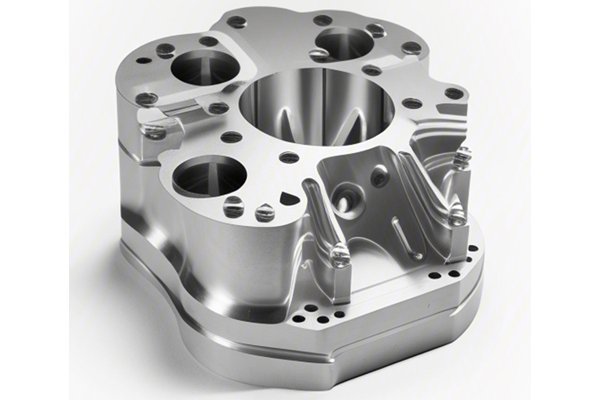:
Did you know that the global CNC machining market was valued at approximately $63 billion in 2020 and is projected to grow significantly over the coming years? This rapid growth underscores the increasing reliance on precision machining technologies in various industries, especially in the production of high-performance parts. In a world driven by technological advancements and the demand for ever-tighter tolerances, understanding the advantages of CNC precision machining can be a game-changer for businesses looking to improve efficiency, reduce costs, and enhance product quality.
This comprehensive blog will delve deep into the advantages of CNC precision machining, highlighting its importance in manufacturing high-performance parts across different sectors. We will cover key concepts, techniques, and examples to paint a clear picture of why CNC machining is an essential consideration for any business looking to stay competitive in today’s market.
—
Understanding CNC Precision Machining
CNC, or Computer Numerical Control, machining refers to the automated control of machining tools by means of a computer. This technology replaces manual methods, thus allowing for the precision production of intricate parts across various materials, including metals, plastics, and composites. The standout feature of CNC machining is its ability to maintain extremely tight tolerances, making it indispensable for high-performance applications.
The Importance of Precision in High-Performance Parts
High-performance parts are critical in industries such as aerospace, automotive, medical, and energy. These components often operate under extreme conditions where precision and reliability are paramount.
—
Advantages of CNC Precision Machining
CNC machines can achieve tolerances as tight as +/
The efficiency of CNC machining allows for rapid production runs. Once a design is programmed into the CNC machine, parts can be produced quickly, reducing lead times significantly compared to manual machining operations.
CNC machining is capable of high-volume production with minimal variation. This makes it ideal for businesses needing a large quantity of components without sacrificing quality.
CNC machines can work with various materials, from soft plastics to hard metals. This versatility allows manufacturers to explore multiple material options for their high-performance parts.
Automating the machining process reduces reliance on manual labor, further pushing down the costs while allowing skilled workers to focus on more complex tasks. This automation results in a more streamlined operation with fewer human errors.

CNC technology allows for easy changes in design. Once the design software is updated, the machine can produce the new part without wasting time on retooling.
CNC machining is more efficient in terms of material use. High-precision cuts minimize scraps and waste, making it a cost-effective and environmentally friendly option.
—
A Deep Dive into Applications of CNC Precision Machining
Let’s explore how CNC precision machining is applied across various industries, showcasing real-world examples where the advantages of this technology shine most brightly.
Aerospace Industry
In aerospace, every component must meet rigorous safety standards. CNC machining is employed to create components like turbine blades, brackets, and fittings, all requiring tight tolerances. For instance, a leading aerospace company successfully reduced production time of engine components by 30% through CNC precision machining, while maintaining compliance with FAA regulations.
Automotive Sector
In the automotive industry, CNC precision machining is critical for manufacturing high-performance engine parts, transmissions, and suspension components. An exemplary case is the production of custom camshafts, which require complex geometries and precise tolerances for optimal engine performance.
Medical Devices
Precision is non-negotiable in the medical industry. CNC machining is used to create surgical instruments, dental devices, and implantable components that are reliable and safe. The use of CNC technology allows for the production of intricate designs that conform to strict regulatory demands, thereby ensuring better patient outcomes.
Energy Sector
Renewable energy systems, such as wind turbines and solar panels, benefit from CNC precision machining. The parts must withstand harsh environmental conditions and mechanical stresses. Precision machined components enhance the performance and lifespan of these systems, helping support sustainability goals.
—
The Future of CNC Precision Machining
As technology advances, CNC machining is expected to embrace new trends such as:
—
CNC precision machining presents an invaluable advantage for manufacturers looking to produce high-performance parts consistently and efficiently. From enhanced accuracy and speed to material versatility and labor reduction, the benefits are clear and compelling.
In today’s competitive market, leveraging CNC technology is not just about staying relevant; it’s about setting the standard. As we have seen through various applications in critical industries, the integration of CNC precision machining leads to improved product quality, reduced costs, and increased customer satisfaction.
As a business involved in manufacturing high-performance components, reflecting on the discussions in this blog is crucial. Embracing CNC precision machining could very well be the strategic decision that propels your business forward, ensuring its longevity and success in an ever-evolving industrial landscape. Looking ahead, those who adapt and innovate will undoubtedly lead the pack in the quest for excellence and reliability in manufacturing.






